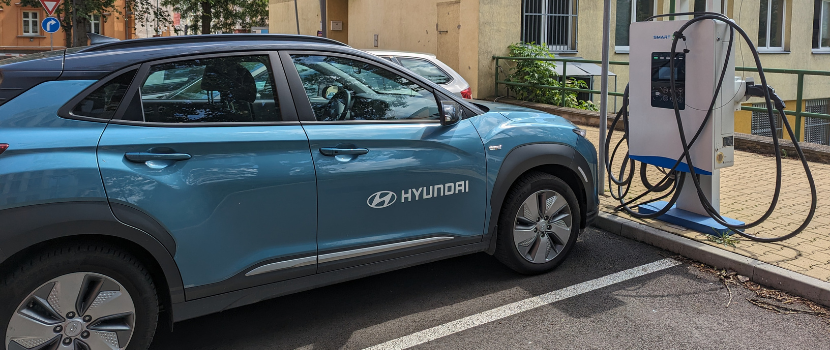
New project at UJEP addresses the safety of lithium batteries | interview
In May 2024, a new international project INERRANT – Integrating Novel Materials with Scalable Processes for Safer and Recyclable Li-ion Batteries – was officially launched, involving research teams from the Faculty of Environment and the Faculty of Science at UJEP. Now we bring you an interview with two key members of the team at UJEP Jiří Orava and Pavel Janoš from the Faculty of Environment.
Your project focuses on developing new materials and processes for batteries for electric vehicles. What are the main shortcomings of the existing ones, and why is this innovation needed?
Jiří Orava: Nowadays, electric mobility, not only cars but also trains, buses, scooters, etc., is a fast-growing, commuting type of transport. The fundamental problem of lithium batteries with liquid electrolytes is their safety, influenced, for example, by mechanical damage, uncontrollable chemical reactions inside the cell, and overheating. Perhaps everyone has seen the footage of burning electric cars and heard about the problems in extinguishing them. Lithium is very reactive. On contact with water, hydrogen is produced, which forms an explosive mixture with air. In addition, the reaction releases a large amount of heat, further promoting the battery’s thermal instability. In our project, we will develop new materials for all battery components, focusing on increased safety, production sustainability, and subsequent recycling.
Recycling of lithium batteries is a topic that your faculty has been at the forefront of for years. Your expertise is invaluable. Could you please share a brief summary of the achievements you’ve made in this area?
Pavel Janoš: No battery lasts forever, and sooner or later, it will lose its ability to produce electricity. Our challenge is to recover as much critical material as possible from discarded batteries and either return them to the battery manufacturing process or use them in other ways. The recycling process and recovery of critical materials are not easy, not least because new types of batteries are constantly coming onto the market, and the development of recycling technologies will have to respond to this. I am pleased that we have found partners sympathetic to this approach and integrated it into their business plans. We have built a team (not only from UJEP) that can cover activities related to lithium battery recycling, from fundamental research to the design of the technology and the construction of the demonstration unit.
How is the INTERRANT project so different from the projects you have worked on at the faculty so far?
JO: The INERRANT project belongs to the Horizon-RIA type of action, a call focused on research and innovation. Such calls are very prestigious in the research environment. It is the largest type of research support, with a total budget of around €95.5 billion to be distributed between 2021 and 2027. The project has 11 partners from six EU countries and one partner from the U.S.
What are the project’s main objectives, and which activities will UJEP be involved in?
JO: The project’s main objective is to develop more efficient and safer lithium batteries. Each of the partners is responsible for a specific part of the technology. UJEP will mainly be involved in developing separator and recycling technologies compatible with the newly developed battery types. The project emphasizes the sustainability of the proposed technologies and materials, as well as the future compatibility of the developed processes with the principles of the “Gigafactory”. Of course, there are several flammability tests to come, which I am personally looking forward to as a chemist.
Such a project certainly brings opportunities for the development of research teams. Can we look forward to meeting some new faces at our faculties?
JO/PJ: The project team comprises experts in materials research, recycling technologies and nanotechnology, who have successfully contributed to several domestic and international projects. The members are primarily top researchers from the Faculty of Environment and the Faculty of Science. However, in European projects, there is generally a great emphasis on professional development and education of young professionals. The INERRANT project provides the opportunity for exchanges and internships, which are an essential part of young scientists’ education. We foresee the involvement of students from existing PhD programmes and, in particular, the new study programme “Environmental and Biomaterial Sciences”. After graduation, INERRANT offers postdocs the possibility of employment in foreign countries. So we will definitely meet new faces, either our new students or international students coming for an internship at one of our top institutes.